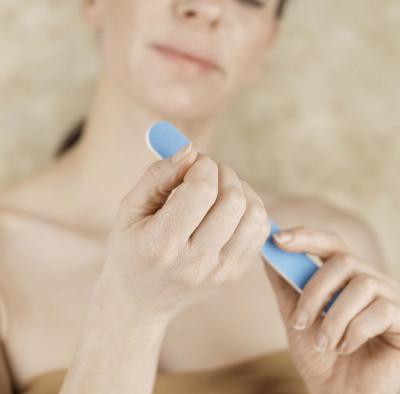The appearance of your hands, including the look of your fingernails, can be one of the first things others notice about you. The health of your nails provides information regarding your overall state of health, including the presence of nutritional deficiencies. In addition to eating a nutritious diet, protecting your nails from harsh substances and damaging elements will enhance the appearance of your hands and nails.
Nutrients
Like the rest of your body, your nails require adequate nutrition to grow strong and healthy. Certain vitamins play an important role in the health of your nails. Talk to your doctor about taking vitamin supplements, especially if you take medications.
Biotin
Also known as vitamin H, biotin may help strengthen your hair and nails. According to the University of Maryland Medical Center, your body requires biotin in order to metabolize amino acids, the building blocks of protein. Although your body doesn’t store biotin, your intestines can produce this vitamin. The Institute of Medicine recommends that females between the ages of 19 and 70 years consume 30 g of biotin each day.
Vitamin A
A vitamin A deficiency can lead to brittle nails that have a tendency to split and break. The Institute of Medicine recommends adult women between 19 and 70 years of age consume 700 g of vitamin A each day. During pregnancy, you may require closer to 770 g each day.
Vitamin E
Vitamin E may play a role in enhancing the appearance of your nails. According to DermNet NZ, some studies show that vitamin E supplementation may help in controlling the discoloration in fingernails and toenails due to a condition known as yellow nail syndrome. Applying vitamin E directly to your nails may help soften and soothe your cuticles, the area of skin directly surrounding your nails. As part of a healthy diet, the Institute of Medicine recommends women consume 15 mg of vitamin E every day.
Food Sources
Eating foods that contain biotin, such as sardines, cooked eggs, nuts, soybeans and brewer’s yeast, can help you meet your daily requirement.
Nutritious sources of vitamin A include liver, crab and eggs. Dairy products including milk, cheese and butter also supply your body with vitamin A.
Foods that contain vitamin E include sweet potatoes, collard greens, asparagus, raw spinach and wheat germ. Whole grains, sunflower seeds, margarine and fish also contain vitamin E.





